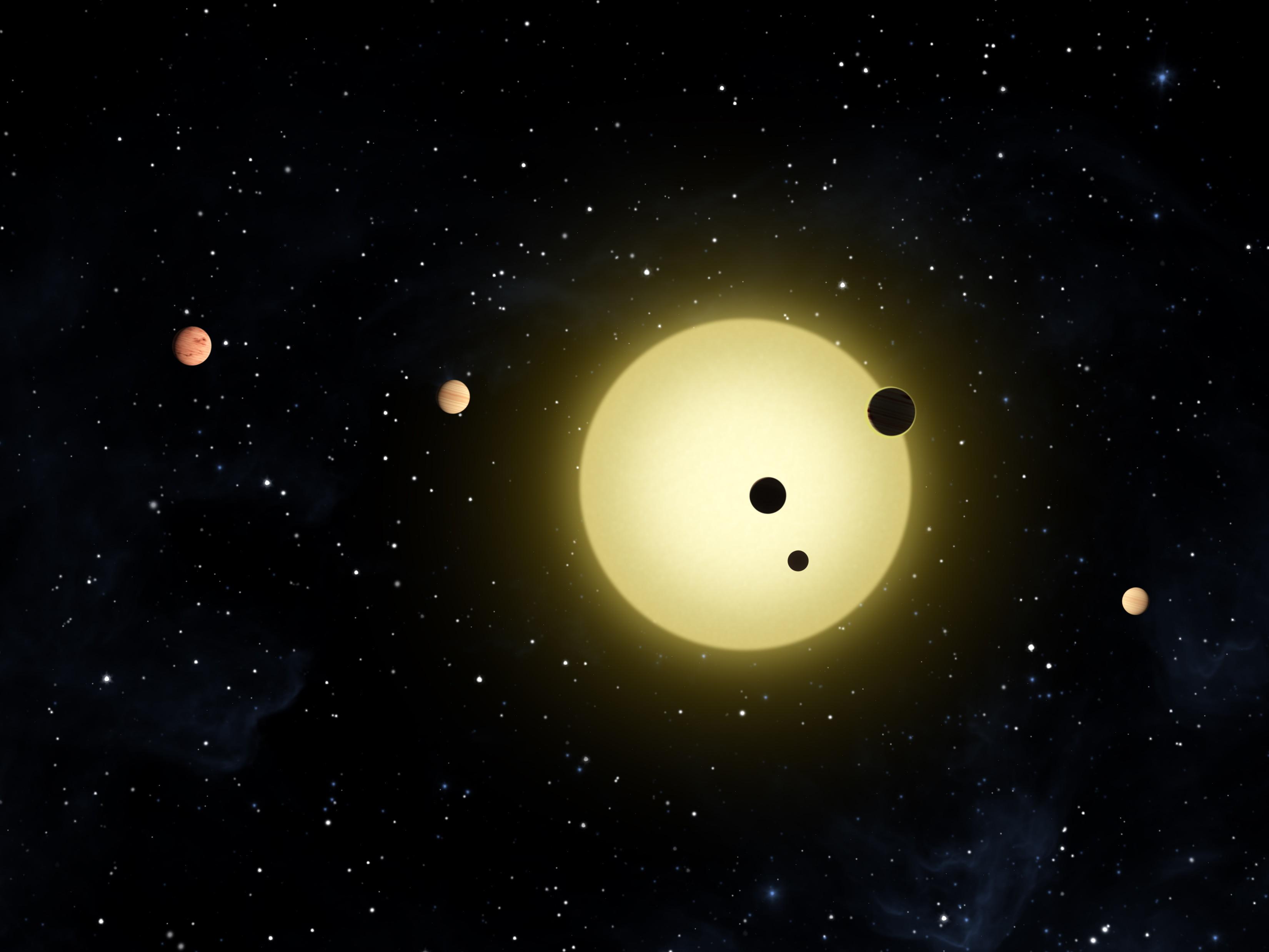Please note: Osher Rainforest will be closed for maintenance May 7-9.
Science News
Kepler 11
February 2, 2011

A “Supercalifragilisticexpialidocious” Planetary System
Quoting fictional supernanny Mary Poppins, planetary scientist Jack Lissauer excitedly announced the discovery the fullest and most compact family of planets yet found. The Kepler-11 system, located about 2,000 light years away, includes six planets, all but one huddled closer to their parent star than the distance between Mercury and our own Sun. Today’s announcement comes from a team of researchers that includes Debra Fischer—formerly of SF State University, but now with Yale University—working with data from NASA’s planet-finding Kepler spacecraft.
Kepler spotted the six planets because their orbital planes lie along our line of sight, allowing the planets to pass in between us and the star. This “transit” event blocks a small portion of the starlight and causing it to dim ever so slightly. Sorting out rhythmic patterns in the various transits was no simple task, since the planets orbit the star at different rates, but painstaking examination revealed six distinct patterns.
If placed at the center of our Solar System, the planetary orbits of five of the Kepler-11 worlds (dubbed Kepler-11b, Kepler-11c, Kepler-11d, Kepler-11e, and Kepler-11f) would lie inside the orbit of Mercury, the planet closest to the Sun, with orbital periods ranging from 10 to 47 days. The most distant planet, Kepler-11g, would be about halfway between the Sun and Earth, orbiting every 118 days. All of the planets are larger than Earth—approximately the size of Neptune—and are believed to be composed of mixtures of gas and rock.
The Kepler spacecraft has completed the first year of a three-year mission, carefully studying the light of 155,000 stars in a small region of the summer sky off the wing of Cygnus the Swan. In its first four months of observations, it detected 1,200 exoplanet candidates, which will require further observations—taking as much as three years—to determine which ones are actually planets.
We can expect many more exciting announcements from the Kepler mission. And we shouldn’t need a spoonful of sugar to help that medicine go down…